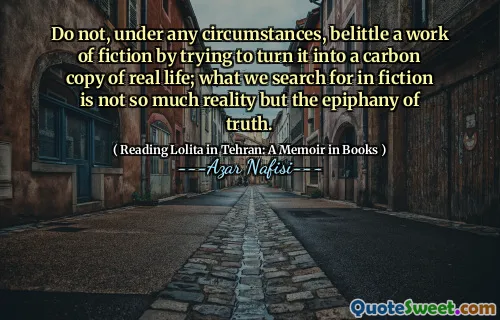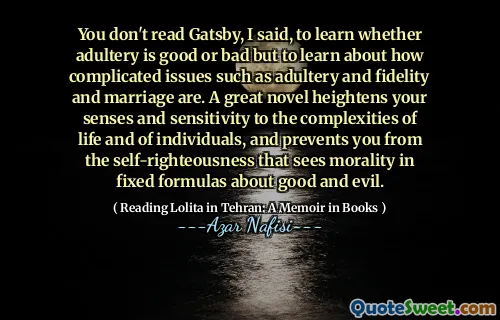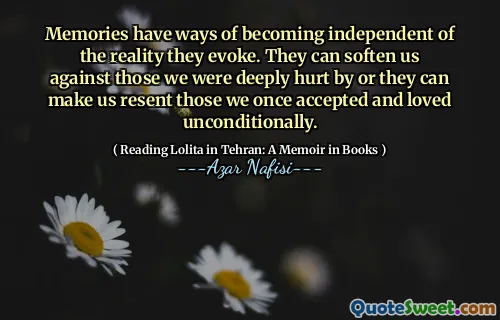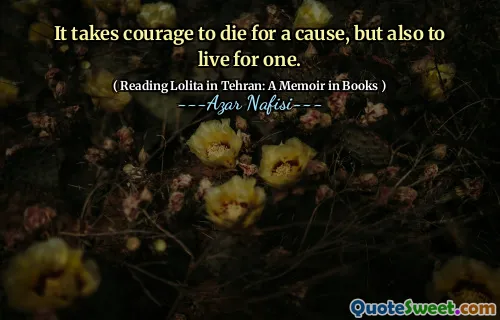
We all had to pay, but not for the crimes we were accused of. There were other scores to settle.
📖 Azar Nafisi
In Azar Nafisi's memoir, "Reading Lolita in Tehran," the author reflects on the oppressive environment of post-revolutionary Iran and the impact it has on intellectual freedom. She draws on her experiences of teaching Western literature to a group of young women, revealing how literature became a form of resistance against the regime's authoritarianism. Nafisi illustrates the struggles her students faced, both personally and socially, as they navigated a society that sought to control their thoughts and expressions.
The quote, "We all had to pay, but not for the crimes we were accused of. There were other scores to settle," encapsulates the theme of injustice that runs through the narrative. The characters face repercussions that go beyond their individual actions, as their lives and reputations are shaped by political machinations and societal expectations. Nafisi uses literature as a lens to explore these complexities, showing how stories can reveal deeper truths about identity, freedom, and the human spirit amidst repression.











